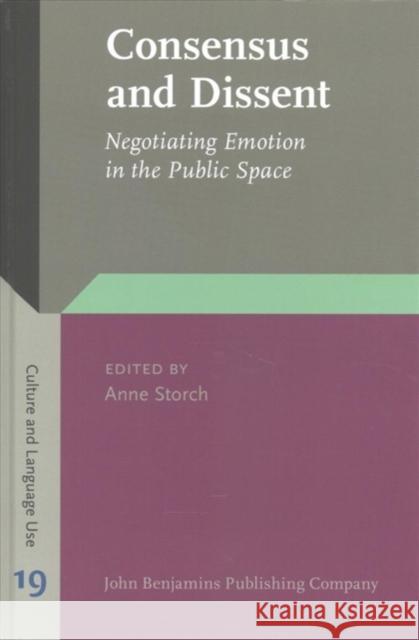Consensus and Dissent: Negotiating Emotion in the Public Space » książka
Consensus and Dissent: Negotiating Emotion in the Public Space
ISBN-13: 9789027244550 / Angielski / Twarda / 2017 / 260 str.
Consensus and Dissent: Negotiating Emotion in the Public Space
ISBN-13: 9789027244550 / Angielski / Twarda / 2017 / 260 str.
(netto: 537,90 VAT: 5%)
Najniższa cena z 30 dni: 559,02 zł
ok. 30 dni roboczych
Bez gwarancji dostawy przed świętami
Darmowa dostawa!
This book is the result of intensive and continued discussions about the social role of language and its conceptualisations in societies other than Northern (European-American) ones. Language as a means of expressing as well as evoking both interiority and community has been in the focus of these discussions, led among linguists, anthropologists, and Egyptologists, and leading to a collection of essays that provide studies that transcend previously considered approaches. Its contributions are in particular interested in understanding how the attitude of the individual towards societal processes and strategies of norming is negotiated emotionally, and how individual interests and attitudes can be articulated. Discourses on public spaces are in the focus, in order to analyse those strategies that are employed to articulate dissent (for example, in the sense of face-threatening acts). This raises a number of questions on the spatial and public situatedness of emotions and language: How is the public space dealt with and reflected in language as property, heritage, and as a part of ascribed identities? Which role do emotions play in this space? How is emotion employed there as part of place making in relation to identity constructions? What is the connection between emotion, performance and emblematic spaces and places? Which opportunities of the violation of norms and transgression do such public spaces offer to actors and speakers? These questions intend to address the communicative representation of core cultural processes and concepts.











